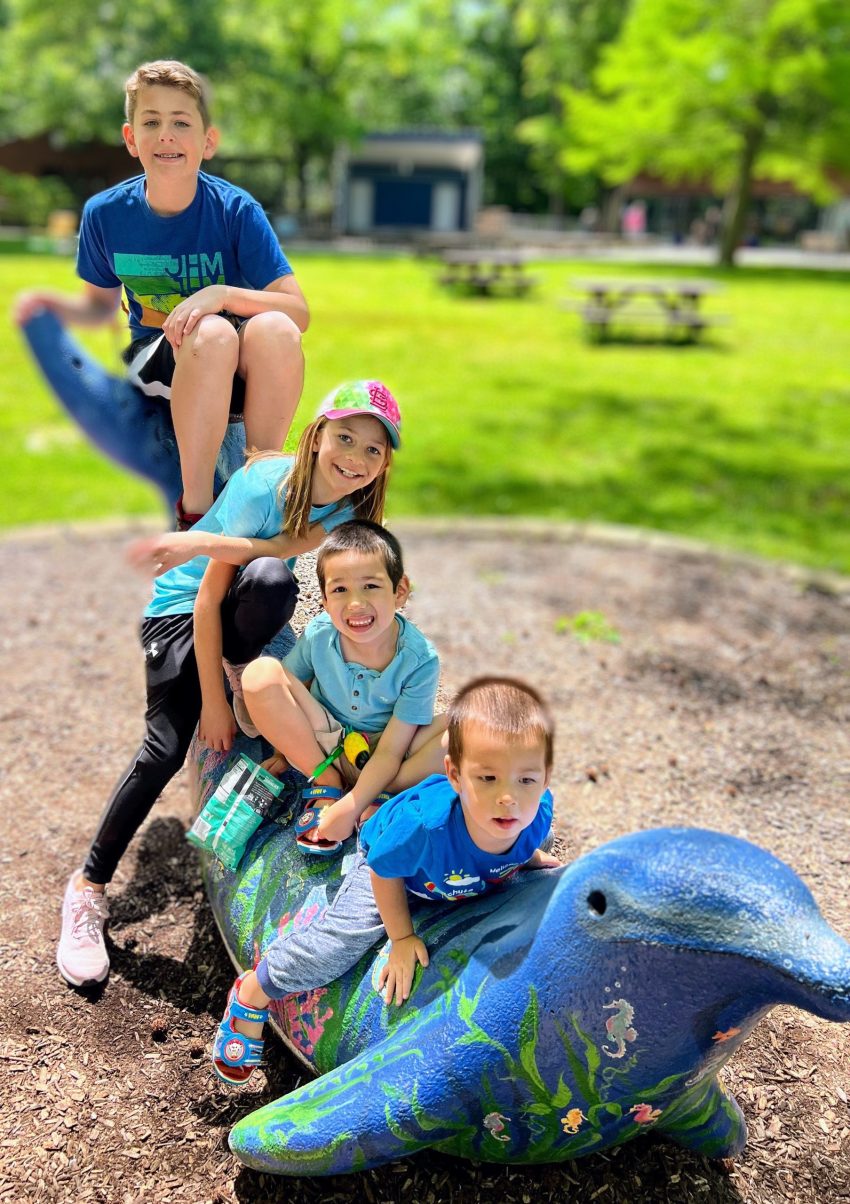Wednesday, December 27, 2023
The Third Day of Christmas
Feast of Saint John, Apostle and evangelist
(click here to listen to or read today’s scriptures)
Baby Jesus, baby all of us
Beloved, what was from the beginning we have heard, seen with our eyes, looked upon and touched with our hands. The Word of life has been made visible and we have seen it.
Andi and Melissa are our two in-family mothers in driving gear. Andi’s sons are 7 and 4. Melissa’s son will be 15 next month, and her daughter is 11. They work hard and pray harder as their kids grow into adults. Ron Rolheiser talks of his mother, and all mothers “spending years nursing, cajoling, teaching, and nurturing an infant into adulthood.”

Mary did just that with Jesus. She gave birth to a baby but “what she ultimately gave the world was the adult Christ.” Orthodox Christians often call Mary the theotokos, Mother of God. Mary the human mother gave birth to God. This is why I love Christianity, which embraces the magical super-naturality of it all rather than insisting on rationality.
Then Fr. Rolheiser turns the lens just a bit and shows me how I too give birth to God:
God never dynamites into our lives with a force so powerful that we can’t resist. God always enters the world in the same way that Jesus did on the first Christmas. God is gestated in a womb and appears as a helpless infant that has to be picked up, nurtured, and coaxed into adulthood. The presence of God in our world, at least within the dynamics of the incarnation, depends upon a certain human consent and cooperation.
Author Annie Dillard once suggested that we always find God in our lives as Jesus was found in Bethlehem on Christmas, a helpless infant in the straw who must be picked up and nurtured into adulthood: “God’s works are as good as we make them. That God is helpless, our baby to bear, self-abandoned on the doorstep of time, wondered at by cattle and oxen.”
This infanthood of God is evident in my life. Often I feel guilty that I pay little attention to God, in my prayers, thoughts, and interactions with people. I myself need to be nursed, cajoled, taught and nurtured into becoming a capable adult in the family of God.
But then I remember my vision of being with Jesus at the village well. It was as a child I felt his love most deeply, as I sat against the warm stones of the well, put my arms around Jesus’ legs, and felt his hand on my head, blessing me without words.
It must be a mutual cajoling – I discover more about God as I learn about myself. And when as an adult I reach out to others and love them – with food, money, words, prayers, time – perhaps it’s then I feel God growing up inside of me.
Rolheiser loves this stuff, and always has. He spent years studying the classical proofs of God and wrote his doctoral thesis on the topic. In the end he concludes that “proof” is not possible. Experiencing the birth of God within us is a more beautiful and truer way to understand how we come to believe in God. Fr. Ron says simply about Mary, and about us, and about Christmas:
Mary gave birth to the baby named Jesus, but what she ultimately gave the world was the adult, Christ. Like all mothers she had to spend years nursing, cajoling, teaching, and nurturing an infant into adulthood. What Mary did each of us too is called upon to do, namely, give birth to God in our lives. Christmas is for marveling at what once took place, but it’s also for imitation, for continuing to give God flesh in the world.
This giving God skin, so beautiful, is not our duty, is never just our job. This is our joy and our desiring.
What we have seen and heard we proclaim now to you, so that you too may have fellowship with us, with the Father and with his Son. We write this so that our joy may be complete.
(posted at www.davesandel.net)
#